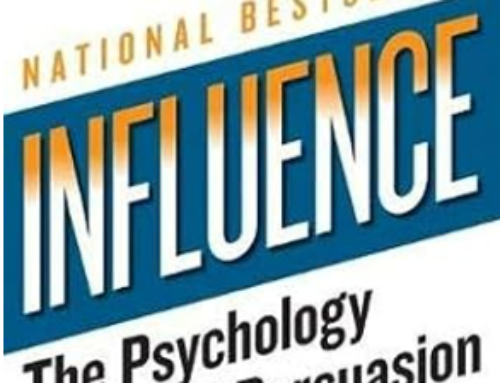Today’s blog post is from: Yes! 50 Scientifically Proven Ways to Be Persuasive
By Goldstein, Martin, and Cialdini
Small little changes to your message can have drastic improvements in results.
Persuasion is science, not art. And Cialdini is the master of studying and teaching that.
How can inconveniencing your audience increase your persuasiveness?
In ’84 Cialdini coined the term “Social Proof.” The 10 cent summary being: The more we see other people liking – or valuing something – the more we will tend to like or value something. Especially if those people are seen to be ‘like us.” It’s the psychological basis of “a million people can’t be wrong.” In “YES” they dive deeper into instances or it working well.
On one infomercial, the authors changed “operators are waiting” to “if operators are busy, please call again.” Increased sales quite a bit. Principal of social proof working here. Creates a better mental image of high demand instead of visualizing people not ordering. Sets the perceptions of others’ actions.
Researchers had 1 guy stop on the street in NY and look up for 60 seconds. Researchers viewing logged the amount of people who looked up.
Then did it with 4 people at the same time. Amount of onlookers who looked up more than quadrupled.
When they changed the hotel towel re-use signs to indicate that “a majority of guests elect to re-use their towels at least once” – Resulted in a 26% higher reuse pattern than just seeing the “save the environment” wording. Then did another trying to be more specific. Some saw a sign said that a majority of people who stayed in their room: were even more likely to reuse at 33%.
We have a tendency to follow the “norms” in the environments that most match where we are right now. i.e… you follow the norms of a library when at the library. Not the norms of the bar you were in the night before. So, the closest that the person giving the testimonial is most near the audience. Take ego out of it and don’t just use the most “prestigious” ones but the ones most similar to the target market. A woman running a salon would be happier to hear testimonials about what your software did for other small salons than General Motors.
If you are a manager trying to get employees to be happy about a new system of doing thing, get testimonials from people similar to the people you are teaching to.

